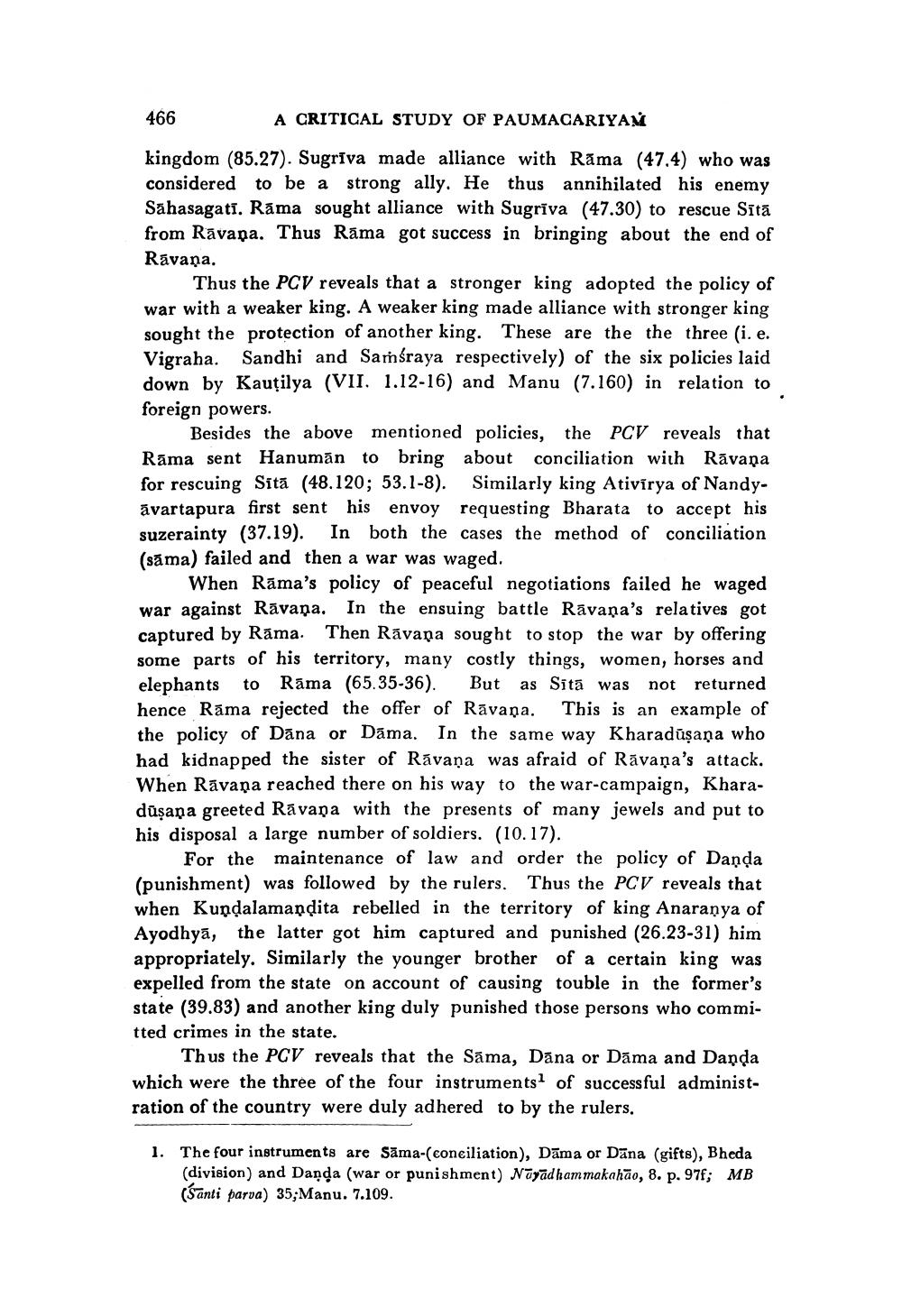________________
466
A CRITICAL STUDY OF PAUMACARIYAM
kingdom (85.27). Sugrīva made alliance with Rāma (47,4) who was considered to be a strong ally. He thus annihilated his enemy Sahasagati. Rama sought alliance with Sugrīva (47.30) to rescue Sita from Rāvana. Thus Rāma got success in bringing about the end of Rávana.
Thus the PCV reveals that a stronger king adopted the policy of war with a weaker king. A weaker king made alliance with stronger king sought the protection of another king. These are the the three (i. e. Vigraha. Sandhi and Samśraya respectively) of the six policies laid down by Kautilya (VII. 1.12-16) and Manu (7.160) in relation to foreign powers.
Besides the above mentioned policies, the PCV reveals that Rāma sent Hanuman to bring about conciliation with Rāvana for rescuing Sítā (48.120; 53.1-8). Similarly king Ativirya of Nandyávartapura first sent his envoy requesting Bharata to accept his suzerainty (37.19). In both the cases the method of conciliation (sama) failed and then a war was waged.
When Rāma's policy of peaceful negotiations failed he waged war against Rāvana. In the ensuing battle Rāvana's relatives got captured by Rāma. Then Rāvana sought to stop the war by offering some parts of his territory, many costly things, women, horses and elephants to Rāma (65.35-36). But as Sita was not returned hence Rāma rejected the offer of Rāvana. This is an example of the policy of Dāna or Dāma. In the same way Kharadūşana who had kidnapped the sister of Rāvana was afraid of Rāvana's attack. When Rāvana reached there on his way to the war-campaign, Kharadüşana greeted Rāvana with the presents of many jewels and put to his disposal a large number of soldiers. (10.17).
For the maintenance of law and order the policy of Danda (punishment) was followed by the rulers. Thus the PCV reveals that when Kundalamandita rebelled in the territory of king Anaranya of Ayodhyā, the latter got him captured and punished (26.23-31) him appropriately. Similarly the younger brother of a certain king was expelled from the state on account of causing touble in the former's state (39.83) and another king duly punished those persons who committed crimes in the state.
Thus the PCV reveals that the Sāma, Dāna or Dāma and Danda which were the three of the four instruments of successful administration of the country were duly adhered to by the rulers,
1. The four instruments are Sāma-conciliation), Dāma or Dăna (gifts), Bheda
(division) and Danda (war or punishment) Nayad hammakahão, 8. p. 978; MB (Santi parva) 35;Manu. 7.109.




